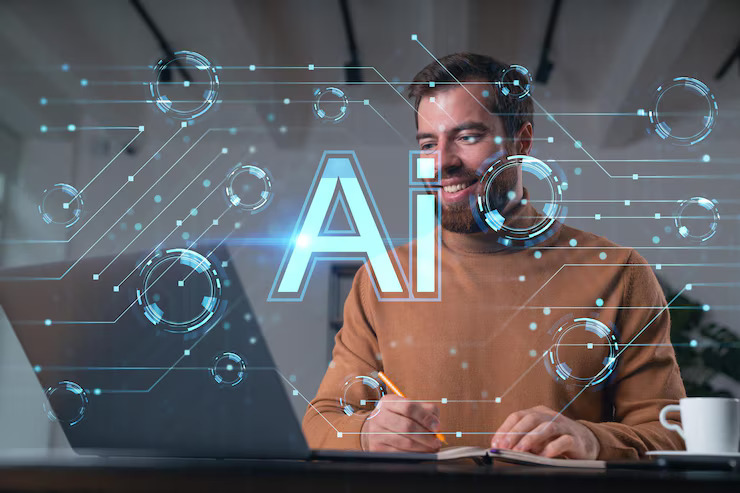Agentic AI Explained: What Makes an AI Agent Truly Autonomous?

Strong 8k brings an ultra-HD IPTV experience to your living room and your pocket.
We often assume that artificial intelligence (AI) is static; it operates based on inputs in the form of prompts, text, or code. This is only true for a certain type of AI. Yes! It has different types, depending on their functionality. AI is constantly learning new things as it evolves and pushes its boundaries. Predictive AI analyses historical data and provides solutions, whereas generative AI creates new material based on your inputs. Now, an intelligent system that is designed to make independent decisions without human inputs is known as agentic AI.
Agentic AI, also referred to as AI agents, refers to autonomous intelligence systems designed for investigating their surroundings, creating goals, formulating plans, evaluating memories, and carrying out tasks with little or no human intervention. It demonstrates superior decision-making, flexibility, and reasoning, distinguishing it from traditional AI models that respond to pre-established rules or patterns. For example, self-driving vehicles can autonomously reroute in response to an unexpected traffic jam. Others include AI bots like Some of the examples for agentic AI are xAI’s Grok, AutoGPT, autonomous vehicles, etc. Some of the popular AI agents are xAI’s Grok, OpenAI's GPT models (like GPT-4o), Devin AI, Claude, Copilot, and AgentGPT.
How does an AI agent work?
It uses a step-by-step process for problem-solving. The various steps are here:
Analyse the surroundings: Agentic AI gathers data from various sources such as digital interfaces, sensors, and databases, and then processes it to evaluate key features. It recognises the surroundings and identifies relevant objects. For example, a warehouse system has an AI model that keeps track of inventory, deliveries, and vehicles.
Reasoning and goal setting: This step uses techniques like retrieval-augmented generation (RAG) to access proprietary data sources and deliver accurate, relevant outputs. AI starts acting as a reasoning engine or orchestrator; it identifies the key goals and their necessity for the smooth functioning of the environment. For example, AI detects a lack of inventory, a decrease or increase in the number of delivery requests, any delays in work, vehicle service periods, and other factors that can disrupt the workflow.
Action: By integrating with external tools and software, agentic AI can complete tasks with the help of application programming interfaces. Guardrails are established to ensure that AI decisions and task completions adhere to ethical, legal, and technical boundaries. For instance, these might include placing an order for inventory revamps, sending notifications or alerts regarding vehicle service periods, and providing optimised routes for quicker deliveries.
Learning and memory: AI continuously learns from past actions and their outcomes. It constantly improves through feedback or data flywheels (past interaction experiences fed into the system to enhance responsiveness). The ability to analyse and adapt over time makes AI agents a powerful tool for businesses for better decision-making and operational efficiency. For example, analysing the past trends and customer behaviour to give considered recommendations.
Applications of Agentic AI
An AI agent has numerous capabilities and uses; some of them are:
Healthcare sector: Agentic AI systems can process patient information and then derive treatment plans accordingly. They can further track patient health status for diagnostic support and medical advice.
Cybersecurity: Agentic AI systems track network activity to detect security threats but also perform risk mitigation tasks by blocking dangerous traffic and isolating infected devices.
AI-Powered Trading: AI bots can analyse stock data, economic indicators, and other elements to forecast market performance. This gives rise to automatic trade execution.
Providing customer support: AI is used to process customer queries through chatbots and provide customised responses. These AI chatbots use pre-fed instructions, measured policies, questions, and solutions.
Finance: AI can give tailored financial recommendations by analysing the individual's portfolio, market volatility, and investment trends. This way, one can minimise the risk. AI also offers fraudulent detection services to boost security.
Human Resources: Agentic AI can automate many HR functions, such as resume screening, interview scheduling, and even performance monitoring, leading to increased efficiency and employee experience.
Energy Management: Agentic AI can optimise energy usage by predicting maintenance needs for energy equipment and balancing energy supply and demand in real-time.
Challenges to Autonomy
We are getting closer to truly autonomous agents, but agentic AI still depends on developers to give it structure. Despite its enormous potential, it faces some limitations, such as:
Hallucinations: Agents may generate incorrect outputs, as noted in Forbes, and may require human oversight to avoid negative outputs.
Safety and Security: The operation of highly independent agents creates potential threats. The agents could gain entry to protected information systems or control operational equipment. According to IBM, the decision-making process of agents remains unclear because they function as black boxes while their ability to incorporate fresh data sources and tools remains unpredictable.
Complexity: AI agents are still in the development phase; handling complex, diverse, and unpredictable scenarios remains a difficult task for autonomy.
Ethical Risks: Without robust guardrails, agents can make harmful decisions that are beyond their functionalities. We need to define the responsibility and accountability for the actions of AI agents. The decisions need to be fair and ethical.
Compute Costs: Autonomous agents often require significant computational resources. Developing and deploying them often requires advanced infrastructure, skilled personnel, and robust data management capabilities. These can add to the overall cost, making it initially expensive.
Conclusion
Agentic AI's profound emergence is considered vital in the evolution of artificial intelligence. It takes us towards the automation work capabilities of AI, which can think, reason, act, and learn independently. It requires minimal human attention and can work as a great assistant. It has a futuristic approach and can be applied to several industries, including finance, healthcare, education, warehouses, and automobiles.
As it continually reevaluates data and memories, it aims for further advancement and increased complexity. To fully embrace this automation, it is essential not only to advance technologies but also to consider ethical implications, implement security measures, and establish effective governance. It can pose several risks, as we are still not able to understand how deep learning systems are making their decisions. They possess the risks of security, hallucinations, and privacy, for which robust human attention is required in the initial phase.
Note: IndiBlogHub features both user-submitted and editorial content. We do not verify third-party contributions. Read our Disclaimer and Privacy Policyfor details.







